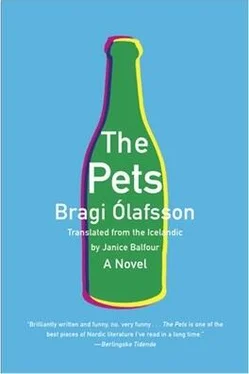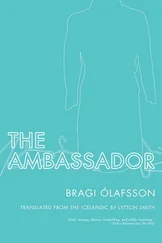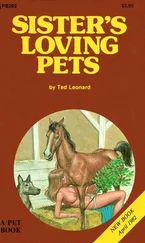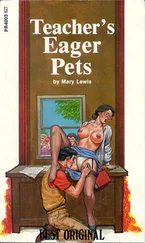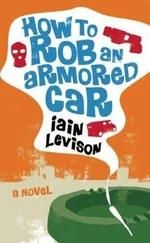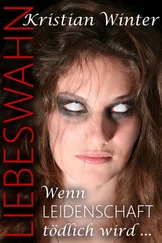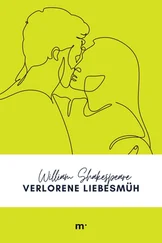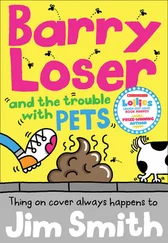Bragi Ólafsson - Pets
Здесь есть возможность читать онлайн «Bragi Ólafsson - Pets» весь текст электронной книги совершенно бесплатно (целиком полную версию без сокращений). В некоторых случаях можно слушать аудио, скачать через торрент в формате fb2 и присутствует краткое содержание. Год выпуска: 2008, Издательство: Open Letter, Жанр: Современная проза, на английском языке. Описание произведения, (предисловие) а так же отзывы посетителей доступны на портале библиотеки ЛибКат.
- Название:Pets
- Автор:
- Издательство:Open Letter
- Жанр:
- Год:2008
- ISBN:нет данных
- Рейтинг книги:5 / 5. Голосов: 1
-
Избранное:Добавить в избранное
- Отзывы:
-
Ваша оценка:
- 100
- 1
- 2
- 3
- 4
- 5
Pets: краткое содержание, описание и аннотация
Предлагаем к чтению аннотацию, описание, краткое содержание или предисловие (зависит от того, что написал сам автор книги «Pets»). Если вы не нашли необходимую информацию о книге — напишите в комментариях, мы постараемся отыскать её.
Pets — читать онлайн бесплатно полную книгу (весь текст) целиком
Ниже представлен текст книги, разбитый по страницам. Система сохранения места последней прочитанной страницы, позволяет с удобством читать онлайн бесплатно книгу «Pets», без необходимости каждый раз заново искать на чём Вы остановились. Поставьте закладку, и сможете в любой момент перейти на страницу, на которой закончили чтение.
Интервал:
Закладка:
“Drowned the other bug!” Havard adds and laughs.
“Well, at least this creature ends up the same way; it dies of nicotine poisoning. And then there is only the last experiment and, of course, it consists in putting the third insect into the glass with the pure water.”
“Armann, I think this friend of yours was having you on,” Havard butts in.
“No, no, this last insect just swims around in the water, full of life, and that’s the end of the demonstration. Those which landed in the alcohol and nicotine had no chance of survival but the one which landed in the water was still alive when the teacher fished it out, no doubt just to be killed too afterwards.”
“So that was the prize for being sensible?” Havard says disgustedly. “Death.”
“It at least resulted in my friend Nicholas starting to smoke and drink in his teens; he couldn’t bear the thought of having some creepy crawlies swimming around in his intestines.”
“Evil shall be swept out with evil, as the saying goes,” Havard crows. I can just imagine how this fellow Nicholas appeals to Havard.
“Yes, that’s the point,” Armann agrees. “Force against force!”
“Steel against steel,” Havard adds.
“An eye for an eye,” Armann says and giggles like a little boy.
He sounds very relieved now that he has finally told his story, which has taken him half a day to tell me, although he naturally has no idea that he has just done so.
12
I never really liked the lizard — the ancient green lizard or iguana which Orn kept in his study upstairs. He had asked us not to let it out of the room — it often nibbled things that lay on the floor — and he told us especially not to let it into the kitchen; there was always a danger that it could have salmonella. Because of that risk, he added, we should always wash our hands after petting or holding it. I’m quite positive that Havard made a point of taking it into the kitchen, just because Orn had emphatically so asked us not to.
That day — by which I mean the second to last day Havard spent in the house — we took the bus down to Tottenham Court Road at lunchtime. Havard, who was more or less broke after betting heavily the previous weekend, brought the ukulele with him, which he intended to sell back to the shop he had bought it from or perhaps take to another shop on Denmark Street. I had suggested as a joke that he take it down to some underground station and try to strum it there to collect a few coins, and had to literally hold him back when he took the suggestion seriously. However, Havard didn’t get as far as trying to do either — selling the instrument or playing it to make money — because he left it on the bus when we got out just next to the Odeon theatre on Tottenham Court Road.
Anyone other than Havard would no doubt have seen the incident as suggesting something like a bad start is a good omen, but, since it was Havard who was involved, the loss of the instrument was rather a taste of what awaited us that day.
While I went into a Virgin Megastore to pick up two CDs I had ordered the week before, Havard waited in a bar on the corner of Oxford Street; he said he needed to cheer himself up after leaving the poor instrument on the bus. Besides, he had already had two beers before lunch and the effect must have started to wear off after the forty minute bus ride.
I spent more time in the record shop than I had intended to. When I entered the bar where Havard was waiting, he was sitting beside an old man in a scruffy raincoat. They were at a narrow table by the wall opposite the bar. There were four empty glasses in front of them, which had clearly contained Guinness, and two smaller ones which had also been emptied. Havard introduced me to the man, who was an old, well-known chess master, and asked me to buy the next round — he had run out of money. He had had to pay for his friend, whom I thought looked like he didn’t need any more to drink. I wasn’t keen to join them, so I told Havard — in the language that no one understands, least of all he who was not meant to understand it — that I had not come into town just to drink, and told him that I was going to visit more shops. I left him with a ten pound note and some change for the bus fare home. Then I walked down Shaftesbury Avenue and had a beer on my own before going into Ray’s Jazz Shop.
While I sat with my cold beer, I began to think that it was incredibly sad that I had left Havard with a penniless drunkard who, at a glance, didn’t seem to have anything to offer except that which was enough for Havard: he was a foreigner. Havard always got a kick out of talking to strangers, not least if they originated from a country other than England. No doubt he and this silent chess master were gulping down one more beer or — which I thought was more probable (considering they only had ten pounds to spend) — they had bought some cans of stronger beer and were sitting somewhere in the sun, smoking and drinking, no doubt quite content, at least Havard, to be free from that boring fellow who didn’t seem able to relax over a glass of beer.
I had always known that Havard and I would never become very good friends but during the days we spent in London an unbridgeable rift had developed between us. I was the healthy one, the one who had interests and wanted to be constructive, even if just in terms of building a collection of CDs or books; Havard, on the other hand, didn’t seem to be interested in anything, unless it was forbidden or contained the highest percentage of alcohol.
I bought him a pack of beer before I set off home later in the afternoon, probably in the hope — at least subconsciously — that he would fall asleep early in the evening. And that’s exactly what happened. But I have to admit that the main reason I stopped at the liquor store on the way home was because I had found two CDs in the shop on Shaftesbury Avenue — CDs that I had been looking for for a long time — and I was so childishly happy that I felt I had to celebrate when I got home. Besides the beer for Havard, I bought a flask of whisky and several bottles of beer. However, it was a different sort of happiness that I found when I walked into the house on Brooke Road; Havard had invited his drinking pal home. The curtains were drawn, there was no music on the hi-fi, and the television was off. A thick cloud of tobacco smoke and silent misfortune hung over them.
It only took me five minutes to get rid of Havard’s guest; after all the hospitality Havard had shown him, the pitiful man was too weak to show any resistance. Havard protested at first but then realized that it was best to let him go. I had to lead him out of the living room and into the front hall, and I gave him two pounds to help him on his way. I think I also gave him a bottle of beer.
Even though I found out that they had finished a whole bottle of port that I kept in the kitchen, I couldn’t be bothered to make a fuss. I expect that I had already decided that I would ask Havard to leave.
After I had hidden the whisky flask and most of the beer, I sat down with Havard and gave him two cans of Special Brew, warning him that he would get no more as he had drunk enough already. Besides, I thought I had made it clear to him that I wouldn’t tolerate his behavior any longer; we were really meant to be working here in London — we were getting pocket money that we, of course, had to work for — and already half of the animals who had been entrusted to us were no longer alive. While I shut myself in the living room to listen to my new CDs, I imagined that Havard had finished the beer and gone to bed upstairs. But suddenly, in the middle of Peter Kowald’s bass solo, a scream came from the kitchen, and I jumped off the sofa and rushed into the kitchen like a streak of lightning.
Читать дальшеИнтервал:
Закладка:
Похожие книги на «Pets»
Представляем Вашему вниманию похожие книги на «Pets» списком для выбора. Мы отобрали схожую по названию и смыслу литературу в надежде предоставить читателям больше вариантов отыскать новые, интересные, ещё непрочитанные произведения.
Обсуждение, отзывы о книге «Pets» и просто собственные мнения читателей. Оставьте ваши комментарии, напишите, что Вы думаете о произведении, его смысле или главных героях. Укажите что конкретно понравилось, а что нет, и почему Вы так считаете.
